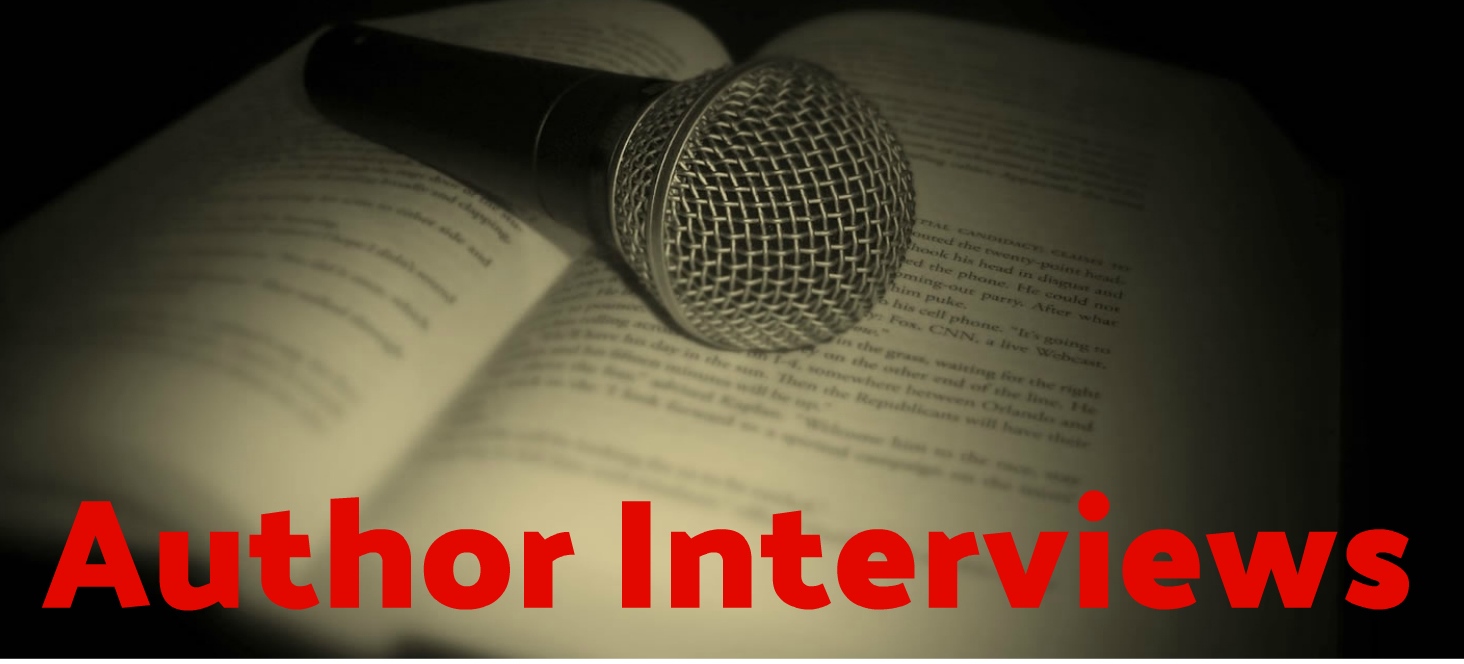
In-Depth Discussions with Today's Darkest Talents
Lee Thomas: Transcending Literary Closets
By, Vince A. Liaguno
For a horror writer, it doesn’t get much better than Bentley Little declaring you “a worthy successor to Clive Barker.” But such comparison to the most successful openly gay horror writer probably holds some added weight if you’re a horror writer – who just happens to be gay himself.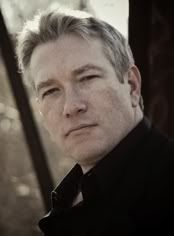
And while everyone wears a label and everyone has a label to give, what’s most remarkable about Lee Thomas’ work is that it transcends a potentially audience-limiting aspect (here sexual orientation) to reach readers of all persuasions with the profound humanity at its core. That Thomas can so ably mine the rich vein of sexual identity to uncover its underlying horrors is what earns him the comparison to Barker and sets him apart as one of the newer crop of dark fiction writers merging traditional horror with a decidedly literary aesthetic.
Thomas flung open the doors to his literary closet with Stained, his 2004 debut novel that went on to win the Bram Stoker Award for Superior Achievement in a First Novel. Since then, he’s written three more widely-acclaimed novels (Parish Damned, Damage, and The Dust of Wonderland – winner of the Lambda Literary Award for Science Fiction/Fantasy/Horror), been a fixture in award-winning anthologies (Inferno, Unspeakable Horror: From the Shadows of the Closet), and even penned several young adult titles under the pseudonyms Thomas Pendleton (Lurker, Mason) and Dallas Reed (Shimmer).
With his latest title, his first ever short story collection called In the Closet, Under the Bed, Thomas has added to his long list of accomplishments and accolades with more rave reviews — as well as a second Lambda Literary Award nomination and a spot on the Bram Stoker Awards final ballot (his fourth).
Dark Scribe Magazine recently sat down for a long-overdue chat with the affably candid dark scribe about the state of queer horror, homophobia in horror, and that delicate balance between blurbs and sexual favors.
Dark Scribe Magazine: Welcome to DSM, Lee. It’s about time we got around to having you here, eh?
Lee Thomas: Absolutely! Thank you. Glad to be here.
Dark Scribe: So, tell our readers something about your new short story collection.
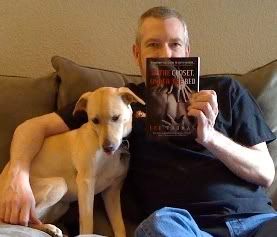 Lee Thomas: In the Closet, Under the Bed collects 15 of my queer-themed horror stories, ranging from titles that appeared very early in my career like “Healer” and “Anthem of the Estranged,” to more recent stories making their debut in the collection like “Crack Smokin’ Grandpa,” and “Tears to Rust.” The stories vary in tone from blood-drenched extreme horror to more psychological, quiet pieces, covering a range of themes that touch on gay experiences. A different version of the collection was originally bought by an imprint of Haworth Press a few years back, but the imprint went belly up, so I shopped around for another publisher, and I think I found a good one.
Lee Thomas: In the Closet, Under the Bed collects 15 of my queer-themed horror stories, ranging from titles that appeared very early in my career like “Healer” and “Anthem of the Estranged,” to more recent stories making their debut in the collection like “Crack Smokin’ Grandpa,” and “Tears to Rust.” The stories vary in tone from blood-drenched extreme horror to more psychological, quiet pieces, covering a range of themes that touch on gay experiences. A different version of the collection was originally bought by an imprint of Haworth Press a few years back, but the imprint went belly up, so I shopped around for another publisher, and I think I found a good one.
Dark Scribe: Where did the title for the new collection come from?
Lee Thomas: The title was a natural. As noted in the collection’s first story, “All the Faces Change”: “When Tim 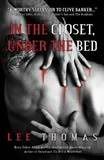 was a boy, he knew where the monsters hid; they were in the closet and under the bed.” Any child will tell you those places are where the beasties live, and even as adults we can look back and remember the creatures our imaginations put there. Additionally, I had been writing a lot of short fiction that looked at closeted men, because let’s face it they set themselves up as victims. I mean all of that secrecy. If a hetero-married guy is having same sex relationships on the side, it’s unlikely they’re telling people where they are going or who they are with, and if something extraordinary or terrifying happens to them who can they confide in? Often enough their indiscretions leak back into the family in some way, affecting more lives than their own. There’s a lot of good stuff to mine there. So the title works nicely on a couple of levels.
was a boy, he knew where the monsters hid; they were in the closet and under the bed.” Any child will tell you those places are where the beasties live, and even as adults we can look back and remember the creatures our imaginations put there. Additionally, I had been writing a lot of short fiction that looked at closeted men, because let’s face it they set themselves up as victims. I mean all of that secrecy. If a hetero-married guy is having same sex relationships on the side, it’s unlikely they’re telling people where they are going or who they are with, and if something extraordinary or terrifying happens to them who can they confide in? Often enough their indiscretions leak back into the family in some way, affecting more lives than their own. There’s a lot of good stuff to mine there. So the title works nicely on a couple of levels.
Dark Scribe: Tom Cardamone and Jameson Currier – both of whom also have new short story collections out – were recently interviewed and we asked them to pick a favorite story from their respective collections. Your turn: Favorite story from In the Closet, Under the Bed — and why?
Lee Thomas: Ugh! It’s like trying to pick the cutest puppy from a variety of breeds. If pressed, I’d have to go with “An Apiary of White Bees,” because there are a lot of elements to it, and I think I managed to balance them to good effect in a relatively short piece.
Dark Scribe: The collection has been very well-received, recently being named a finalist for both this year’s Bram Stoker Awards and the Lambda Literary Awards and getting rave reviews from both horror and LGBT outlets alike. What’s your response to the reaction?
Lee Thomas: The reception has been great and has spawned much dancing in and around these parts. You never know how any project is going to be received, and one like this – which is hardly common for the genre – brings a high level of risk with it. I will admit to some amusement in regard to the straight-up horror reviews as they invariably have language that suggests, “It’s gay, but it’s still good,” as if they are mutually exclusive terms. Ha! Most of the reprinted stories (all but one) were originally published in mainstream horror markets, so it’s not like I’m introducing something radically inappropriate for genre. It’s a shame we’re still at a point where these distinctions have to be made, but I’m glad both reviewers and readers are enjoying the collection.
Dark Scribe: Yet despite solid reviews and awards consideration, single-author collections just aren’t high on traditional publishing’s radar, unless your name is King. Why do you think that is? Is the short story now a niche market?
Lee Thomas: If you find out, text me. I’d really like to know myself. In most things attention spans are shrinking, so you’d think shorter works would increase in appeal. That doesn’t seem to be happening. Instead we’re seeing a television approach to storytelling with so many books being installments of a series. I imagine readers find comfort in the familiar, following characters they like through a variety of scenarios. Often times, collections are just the opposite with little connecting the pieces, so it’s like starting over with each story. I’m not sure why that is daunting or unappealing for readers.
Dark Scribe: You seem equally at ease in the short story and novel formats. Do you have a preference for one over the other? What are the unique challenges you face when working in each?
Lee Thomas: I came to short stories late. I was writing novels before I explored the short form. Novels give me enough room to move around and dig through layers. Plus I have a broad range of characters reacting to events in different ways, bringing enough perspectives to really illuminate an idea. In some ways short fiction is where I experiment, playing with structure, point of view, and language. They’re exercises I do to strengthen my longer work, and while the results aren’t always successful, they get my head into new spaces and force me to be succinct. I find them more difficult word for word than novels, but the results can be satisfying. Novellas are playtime for me. I’ll have a few of them out this year, depending on production schedules. While I’m still focusing on characters and atmosphere, my novellas tend to be more visceral – bloodier and faster-paced.
Dark Scribe: Let’s talk blurbs for a minute. You’ve racked up some impressive blurbs for your work, including some from genre favorites like Bentley Little, who actually called you “a worthy successor to Clive Barker.” Many in the industry dismiss blurbs as writers trading hand jobs. Any thoughts?
Lee Thomas: Though incredibly grateful for the quote, I’ve neither met nor spoken to Bentley, so I hope he’s not holding his breath on that handjob.
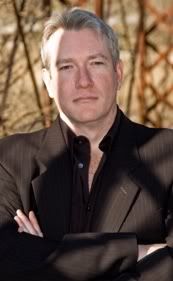 Blurbs are weird things. If your book doesn’t have any, readers will wonder what’s wrong with it, but if you go on with five pages of the things, especially if they come from authors no one has ever heard of, it sends a message of desperation. Two of the first blurbs I received in my career – for my novel Stained – were unsolicited, and I think that added to their credibility. Both Tom Piccirilli and Jack Ketchum read the book on their own and sent along some very kind words that they gave me permission to use. That was amazing and really useful because I hate asking for blurbs. Even now, I have a real problem approaching writers to read my work.
Blurbs are weird things. If your book doesn’t have any, readers will wonder what’s wrong with it, but if you go on with five pages of the things, especially if they come from authors no one has ever heard of, it sends a message of desperation. Two of the first blurbs I received in my career – for my novel Stained – were unsolicited, and I think that added to their credibility. Both Tom Piccirilli and Jack Ketchum read the book on their own and sent along some very kind words that they gave me permission to use. That was amazing and really useful because I hate asking for blurbs. Even now, I have a real problem approaching writers to read my work.
That noted, I think blurbs can be misleading. You read some of the quotes out there and then read the book they’re praising and you wonder how an author you respect so highly can endorse a project that is so obviously not what they promised. Granted, they could be seeing something in the work a particular reader doesn’t. It’s a tough call. I think it’s great that established authors take the time to read and recommend a work – particularly if it gives a boost to new writers – but that doesn’t mean I’m going to agree with their assessment of it.
Like reviews, readers have to take blurbs with grains of salt. If they see an author name they admire, that should get them to read the cover copy to see if the story interests them and then maybe sample a page or two to see if the writing is working for them. Blurbs are recommendations not guarantees, and I think readers can use them as part of their buying decision.
Dark Scribe: You maintain a fairly active online presence, on social networking sites like Facebook and LiveJournal. Some writers (i.e. Little) avoid it like the plague; others (Brian Keene comes to mind) have come to master the art after some well-publicized public skirmishes. How does a writer successfully balance the need to be out there with the need to be true to one’s own moral compass?
Lee Thomas: I don’t know that I’ve done it successfully, because of that whole moral compass thing. I’ve turned off some colleagues and probably a publisher or two with my positions on certain issues. There’s definitely a “play nice” mentality out there, and a lot of writers serve their careers by keeping their heads down. I don’t work that way. Problems don’t get solved if people turn a blind eye. We don’t advance; we simply wallow. I mean it’s not like I’m prowling the web looking for trouble. I’ve had very few public conflicts, but they are invariably over something I believe in strongly. If I lose the favor of a few people here or there, I can’t worry about that.
What does work and is generally very successful for social media-ists is using their forums as information portals, linking to and commenting on various outside stories. These can be specific to the publishing industry, writing advice, upcoming films, professional wrestling, knitting or NASCAR – whatever interests the author. Not only does it mute the glare of self-promotion (which is generally the focus of these things) but it also adds opportunities to build dialogues. Like-minded folks will begin to see these writers as a valuable resource and keep a close eye on their posts, and one can build a decent following in the social media community, which has grown so much, it’s probably the strongest promotional device out there these days – and it’s free.
Dark Scribe: DSM recently hosted its first ‘Queer Horror’ month. As an out gay writer, what are your thoughts on the state of queer horror fiction right now?
Lee Thomas: We’re in a good place right now, but then we haven’t really had great representation in the past, so up is the only direction available. We have authors like Clive Barker, John Saul and Douglas Clegg to thank for showing that coming out didn’t mean career death, and now we’re seeing something of a boom. You already mentioned Jim [Currier] and Tom [Cardamone] – both of whom are creating excellent fiction. Joel Lane from the UK, is pretty much brilliant and often includes queer characters in his work. More people should be reading these guys. David Thomas Lord’s Bound in Blood and its sequel made a huge splash and crossed over to the mainstream. You’ve added to the canon with The Literary Six, and Steve Berman has utilized queer characters in his work for years, much of it appearing in 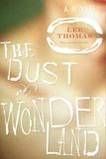 mainstream anthologies. Hal Bodner is making a name for himself with queer horror erotica, and Rob Dunbar released his collection Martyrs and Monsters – which has considerable queer content – early in 2009. His book is on the Bram Stoker Award ballot right next to In the Closet, Under the Bed. And speaking of the Stoker Awards, let’s not forget last year’s winner for anthology, a queer-themed book called Unspeakable Horror. That represented a great stride forward. Straight writers are also doing a much better job with queer characters as exemplified by Joe R. Lansdale’s long running Hap and Leonard series, Peter Straub’s Tim Underhill character. Brian Keene’s Dead Sea, Stephen King’s Cell, and a host of others. These are just the folks off the top of my head. I’m sure there are many new writers pushing through the veil, creating powerful horror stories with queer characters, and in time we’ll see them emerge. Also important to note is the fact we have publishers devoted to queer lit and many of them will consider dark fiction. Alyson has published a number of horror and horror-adjacent titles, including my novel The Dust of Wonderland. Berman’s Lethe Press handles all manner of speculative lit, and there’s a new outfit called Dark Scribe that seems open to the concept. Ha!
mainstream anthologies. Hal Bodner is making a name for himself with queer horror erotica, and Rob Dunbar released his collection Martyrs and Monsters – which has considerable queer content – early in 2009. His book is on the Bram Stoker Award ballot right next to In the Closet, Under the Bed. And speaking of the Stoker Awards, let’s not forget last year’s winner for anthology, a queer-themed book called Unspeakable Horror. That represented a great stride forward. Straight writers are also doing a much better job with queer characters as exemplified by Joe R. Lansdale’s long running Hap and Leonard series, Peter Straub’s Tim Underhill character. Brian Keene’s Dead Sea, Stephen King’s Cell, and a host of others. These are just the folks off the top of my head. I’m sure there are many new writers pushing through the veil, creating powerful horror stories with queer characters, and in time we’ll see them emerge. Also important to note is the fact we have publishers devoted to queer lit and many of them will consider dark fiction. Alyson has published a number of horror and horror-adjacent titles, including my novel The Dust of Wonderland. Berman’s Lethe Press handles all manner of speculative lit, and there’s a new outfit called Dark Scribe that seems open to the concept. Ha!
Dark Scribe: How do you define queer horror?
Lee Thomas: I really wish I didn’t have to. It would be nice to just say “This is a great story. Read it!” but we’re a culture of buzzwords and categorizations, so I suppose I should come up with something. Queer horror is dark and disturbing fiction, utilizing GLBT characters in a way that explores universal themes, while grounded in the realities of queer life. How’s that?
Dark Scribe: Horror and homophobia. Reality or perception?
Lee Thomas: Of course it’s real, though I don’t think it’s rampant. Early in my career, an interviewer asked me this question, and I was all rose-colored glasses about the whole thing. I hadn’t seen discrimination or to my knowledge experienced it, because my career was building rather nicely, and I didn’t think that would be possible in a homophobic atmosphere. But since then I’ve seen some blatant nastiness that shattered those rosy specs, and I’m less-than-tolerant of it (Please see the above regarding public conflicts).
Let’s work on the definitions though. “Homophobia” has become a catchall phrase, basically meaning anything anti-GLBT. Technically that’s not what the word means. What we see a lot of is bias, not abject loathing and repulsion, and this prejudice may be the result of homophobia, or it could be ignorance, or it could be economic in basis. I know that trying to sell gay-themed books to “straight” publishers is difficult, not because they loathe the gay community, but because the sales numbers on previous gay-themed works have not been particularly high. Whether they’ve put any actual promotion dollars behind those titles or not, who can say? This is an economic prejudice, and it applies to a number of minority groups. Of course, publishers are more than happy to have books “with” gay characters (and that’s a great step) but they run to the hills when faced with books “about” gay characters, because they just don’t believe there is a market – outside of erotica – to support them. Maybe they’re right, but by making this judgment they are perpetuating the problem – effectively silencing new voices that might crossover. Further, this excuse makes a great wall for the genuinely homophobic to hide behind.
Adding to the problem, horror is a very conservative genre with a number of conservative people involved, which is why quite a bit of the work feels so tired. The protection of the status quo is one of the oldest themes in genre, but many writers (and editors) don’t seem to realize that the status quo has shifted in the last thirty years. As such the perception of normalcy that colors the work is rather narrow, and we’re offered the same character dynamics and themes time and again. This is problematic in that it reinforces outdated parameters for horror lit. So we have to keep publishing and introducing queer material until it’s not seen as a novelty or a threat, and eventually we can drop the label “queer horror” and get on with things.
As for genuine homophobia, it doesn’t surprise me that it exists, because it is an ignorant, fear-based response and human beings are terribly susceptible to such things, but I am surprised to find it in a community that is supposed to be well read. It’s actually kind of shocking in that context. Worse yet are the writers who turn their heads the other way, make excuses for the behavior, or defend the wrong-doer, simply because it serves their careers to do so. It’s a shame that people – and I’m a person so I’m not above the statement – let a “dream” hold so much power over their humanity.
Dark Scribe: You also write for the young adult market under the name Thomas Pendleton. Has there been any pressure from the publishers you work with in those markets to, shall we say, curb your gay enthusiasm?
Lee Thomas: Oh, I’m going to get in trouble for this. Yes, and I’m angry and embarrassed I let it happen. A book I proposed to an editor centered on a gay teen. Well, the editor liked the story but not the gay component, so she asked that I “straighten” the character out. It was a disaster. Thematically it just wasn’t as powerful or as interesting. It was my fault. I should have fought harder.
In the editor’s defense, actual horror for teens – something that doesn’t include twinkly, dreamy vampires – is a tough sell. She had a lot riding on the book, so I don’t blame her in the least. I don’t like it, but I get it. From my standpoint, I won’t do it again.
Dark Scribe: How important is the inclusion of LGBT characters and themes in your work?
Lee Thomas: Pretty damn, I’d say. It should be obvious that I loved horror novels and movies growing up but when it came to gay characters, they just weren’t there – not in any positive or substantive way. You’d run across a good one here or there, like Dana in King’s The Stand, but for the most part gays were presented as sinister reprobates or self-loathing depressives just waiting to be victimized. These were representations the society at large understood and accepted, which brings me back to the whole status quo discussion above.
 After seeing Barker dipping his toes in the subject matter with his Books of Blood and then diving in head first with Sacrament, I realized that there was room for and a need for these kinds of stories in the horror genre, and not just for queer audiences. I don’t think it’s necessary to preach to the converted so much at this point, though my work obviously resonates with gay readers. It strikes me that we need to get our stories in front of new audiences, and the way to do that is to emphasize the universal aspects of a story – making them relevant to the human condition beyond the queer experience – so that they are accepted and enjoyed by mainstream readers. In doing so, we address and hopefully break down a lot of the misinformation and yeah… fear… that people have of the GLBT community.
After seeing Barker dipping his toes in the subject matter with his Books of Blood and then diving in head first with Sacrament, I realized that there was room for and a need for these kinds of stories in the horror genre, and not just for queer audiences. I don’t think it’s necessary to preach to the converted so much at this point, though my work obviously resonates with gay readers. It strikes me that we need to get our stories in front of new audiences, and the way to do that is to emphasize the universal aspects of a story – making them relevant to the human condition beyond the queer experience – so that they are accepted and enjoyed by mainstream readers. In doing so, we address and hopefully break down a lot of the misinformation and yeah… fear… that people have of the GLBT community.
I guess I’m lucky. I always considered myself a horror writer and just happened to write about gay characters here and there. As such, I made inroads into the horror community, and they seemed just as accepting of my stories with queer content as those without. That’s wonderful, because I don’t want to write one thing or the other exclusively. In fact, I have a good number of short stories and novellas appearing in various markets this year, half a dozen at least, and only two of them have gay protagonists. It wasn’t planned that way. Those were just the stories I wanted to tell, and in two of those instances, I tried the stories with gay characters and they just didn’t work.
Further, there’s a rich vein of material there. Despite having a number of folks (noted above) writing horror with queer themes and characters, it remains a drop in the bucket when compared to the majority of horror offerings, which are predominantly hetero-focused. There are experiences and characters I have access to that other writers don’t, so if I can use these and integrate them into stories I create something fresh. The greatest challenge is to show the emotions and needs driving these characters in such a way that their stories can be enjoyed by all readers, regardless of sexual orientation.
Dark Scribe: You may not remember this, but in response to a criticism you once shared with me regarding my first novel, you said, “Whenever I'm working on a project, I'm conscious of the ‘pink glasses’ I wear, and when those lenses start shading characters inappropriately, I have to take them off and get my butch on.” Can you remember a particular story or novel you were working on when that happened to you? What advice do you have for other gay authors on how to “get their butch on”?
Lee Thomas: Ha! I said that? Well I think my point was in regard to a straight character you had written, who was just a bit too fabulous (correct me if I’m wrong). And yes, in my first published novel, Stained, I had to be really vigilant about the pink glasses, particularly in regard to my main character Ted.
Many years ago, I was reading a great novel by a well-known author, but it felt a bit off. He was a straight writer, writing from a gay male point of view, yet his descriptions of women were eroticized, whereas his descriptions of men were not. It didn’t strike me as a big deal, but it stuck with me, and I started keeping an eye out for this kind of gaff in my own work.
In any case, it’s Creative Writing 101. A writer has to get out of his own head and into the heads of the characters he’s creating; they aren’t all going to think the way the writer does. If they do, there’s a problem. For gay writers it should be relatively easy to fashion straight characters. We grow up surrounded by a predominantly straight aesthetic in the media and in life, so it’s easy to mine innumerable sources for material.
Dark Scribe: We hear you’re co-chairing next year’s World Horror Convention in Texas. Tell us what your planning committee has in store for the attendees so far.
Lee Thomas: Pain and degradation! Our guests are the new stars of the genre, people like Joe Hill, Sarah Langan, Steve Niles and Vincent Chong. These folks are creating incredible, visionary work and setting the groundwork for the next wave of mainstream horror. Plus Brian Keene will be holding a business seminar for writers, and Joe R. Lansdale hisownself will act as Toastmaster for the event. Also, Black Static Magazine is sponsoring the World Horror Convention Short Story Contest, which will get underway later this year. We’ll be announcing at least one more guest of honor and more special events as the date draws near. Folks can keep track of the goings on at the convention's website.
Dark Scribe: Not to sound like Sinatra here, but any regrets thus far in your accomplished career?
Lee Thomas: Right now, the only regret I have is waiting so long to approach publishing. I was a “closet” writer until my mid-thirties. I wasn’t very interested in publishing. I’d finish writing a novel and tuck it away in a box and then move on to the next one. When you work like that, you miss an incredible opportunity for feedback that can help your writing improve, and you also ingrain some bad habits. I think I’m doing okay, but yeah… I should have started younger.
Dark Scribe: The obligatory question: What’s next for Lee Thomas, the author?
Lee Thomas: I’m still shopping a couple of queer-themed horror novels, so no big news on that front, yet. I have quite a bit coming down the pike on the novella and short fiction side of things. Forthcoming releases include short fiction in the anthologies Dead Set (23 House), Darkness on the Edge (PS Publishing), Horror Library Vol. 4 (Cutting Block Press), Armageddon Lightshow (Bloodletting Press) and Best Gay Stories 2010 (Lethe Press). My novellas The Black Sun Set (Burning Effigy Press) and Focus, (co-written with Nate Southard) will also appear later this year. There are a couple more short stories and at least one novella also scheduled, but they haven’t been announced, so I’m keeping quiet. On the non-fiction front, my essay “Swapping Head: Hellbent” will appear in the Butcher Knives & Body Counts book from… well… you know (Dark Scribe Press).
Dark Scribe: What’s your secret drag name? Come on, drop the butch and fess up.
Lee Thomas: I am the Divine Miss Holly Wood. Best recognize!
For more information about Lee Thomas, visit his official author website.
Visit our virtual bookstore to purchase a copy of In the Closet, Under the Bed.
Want to win an autographed copy of In the Closet, Under the Bed? Enter here!



